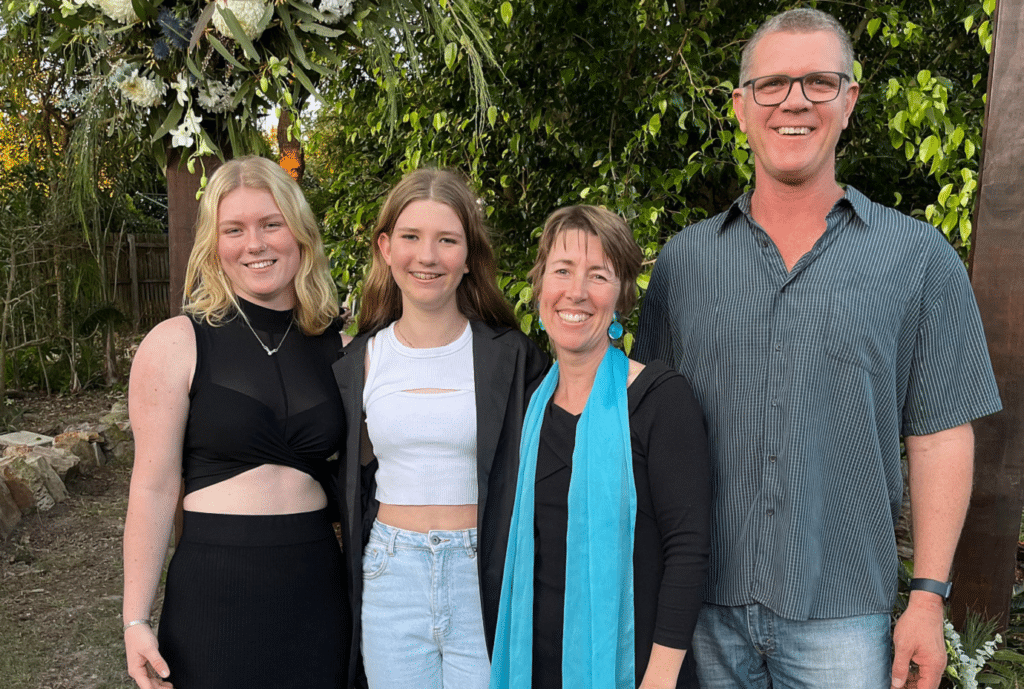“Hey look over here, all this coral is dead!”
This was the sobering statement shouted by my husband as we snorkelled from the boat over to the reef. In disbelief, I looked at my daughters and swam over to see for myself.
The sight of the dead coral is a moment of reckoning. Over the past 14 years we have regularly dived this reef delighting in soft and hard corals, seeing reef fish and other marine life including turtles. Throughout this time the reef has survived floods, cyclones and other weather events. Then all of a sudden following three large floods in 2022 the coral cover has reduced by 50% and the seagrass meadows decimated.
It’s like some kind of tipping point has been reached. Our youngest daughter was born only kilometres from this reef. A reef that was alive when she was born, a reef that is now largely dead before she is an adult.
The decline and death of coral reefs and marine eco-systems has long been predicted as an impact of carbon pollution warming our ocean, of land based practices that degrade water quality and the increase in severe weather events such as floods and cyclones.
I now find myself a mother in the midst of this decline and death.
But it’s not just the dead coral.
It’s the sick and dying turtles too.
My daughters have been alive for the hottest summers on record. Extreme summer heat that has made sand so hot that turtle hatchlings have been cooked in their nests. I’ll never forget my daughters’ faces as we watched rangers unearth the tiny dead bodies. And this year record numbers of sick, injured and dead turtles have washed up near our home.
It’s distressing to see your children witness these events and ask: ‘but why, mum? Why is this happening? Why aren’t the turtles even making it out of their nests? Why are so many washing up this year? Why is the coral dead?’
What do I say to them now? They are old enough for the truth, they are aware of the recommendations made by climate scientists. And yet, how can I look my children in the eye and tell them – we have failed you? Our society has decided that short term profits are more important than taking care of the turtles and the coral reefs, more important than ensuring that you will have a safe future.
Guilt is one of the many uncomfortable feelings I grapple with being a mum in the midst of a changing climate. I ask myself why haven’t I done more? What if I had spoken up 20 years ago when I first learnt about the risks of carbon pollution? Would it have made a difference? What if I’d tried harder to reduce our emissions, our carbon footprint? Anger and frustration arise too. I know this is bigger than me, so much bigger than my family. Why have our politicians failed us? Why have they wilfully ignored the science? Why did they not take more precautions at least?
And yet hope and gratitude exist too.
That day in the water – I could see that all is not lost. We swam with fish, we marvelled at sea snakes, we drifted above an adult turtle – all finding shelter and food in the skeletons of the coral and structure of the reef. Nearby we encountered a patch of soft corals – still very much alive, vibrant like a beautiful garden. It made my heart sing. This life in the ocean, this beauty is precious, it lights up our children’s faces and brings a squeal of delight out of their snorkels. This is worth speaking up for and protecting.
I don’t know what my daughters will face in the coming decades. I don’t know what loss or destruction they may grieve. But I do know that I will keep showing them the beauty that is here, while it is here and I will honour my duty of care to them by speaking up on climate change and doing what I can to protect what is precious.
And you can join me too, being a parent is challenging as it is – you don’t need to take climate action on your own. I’ve joined Australian Parents for Climate Action and it’s been one of the most supportive things I’ve done in recent years.
You can connect with other parents who care about a safe future for our kids here https://www.ap4ca.org/join


